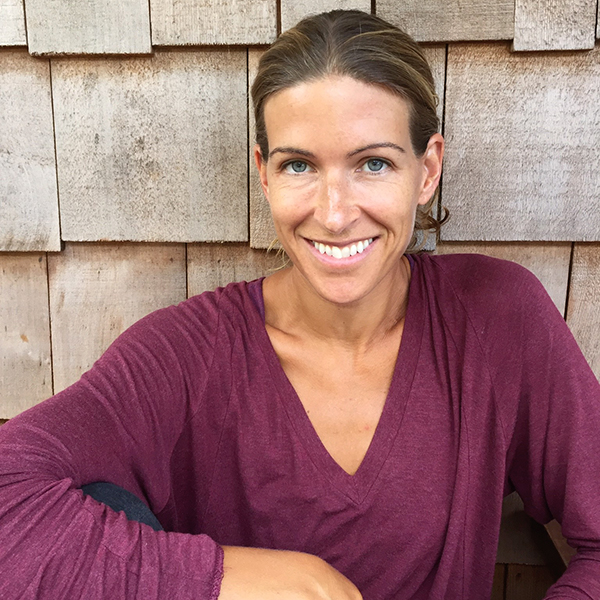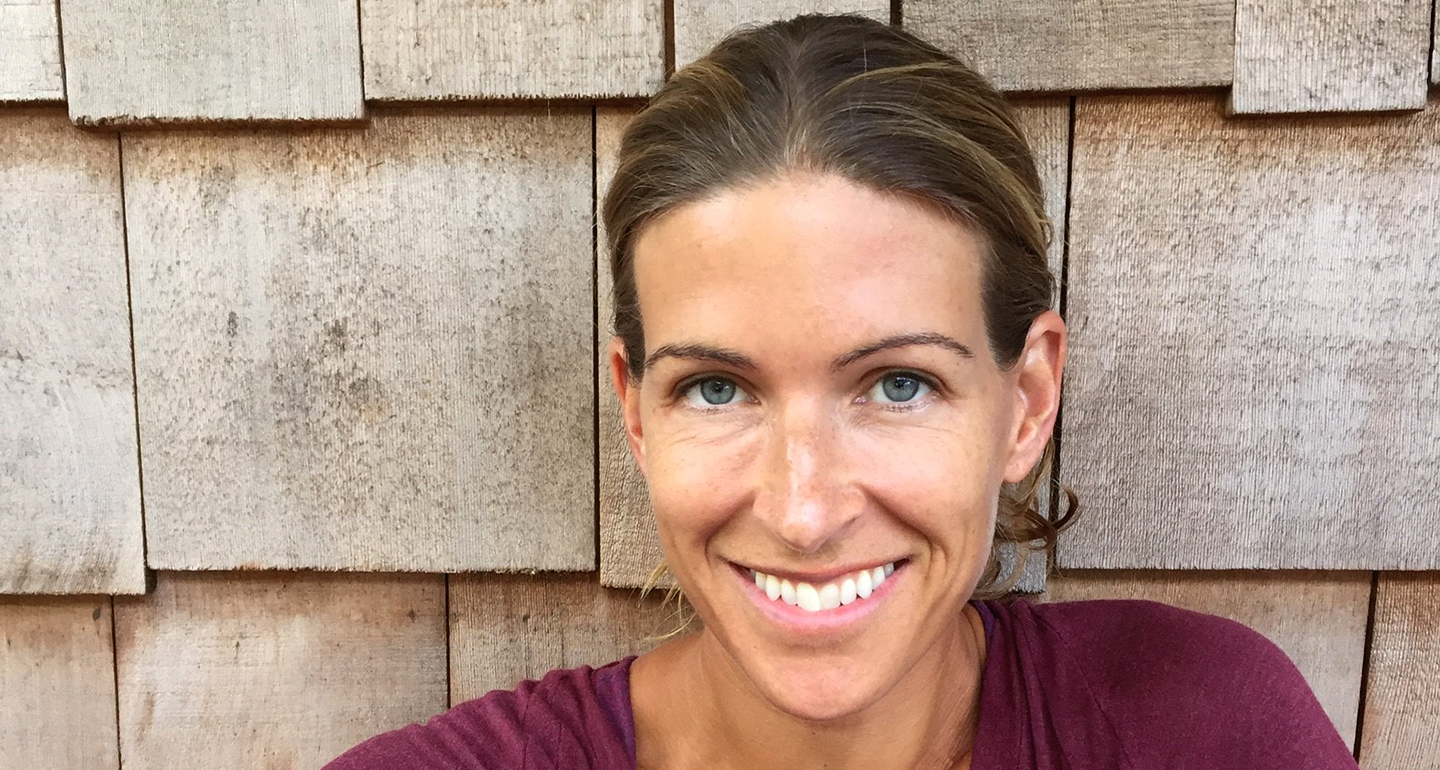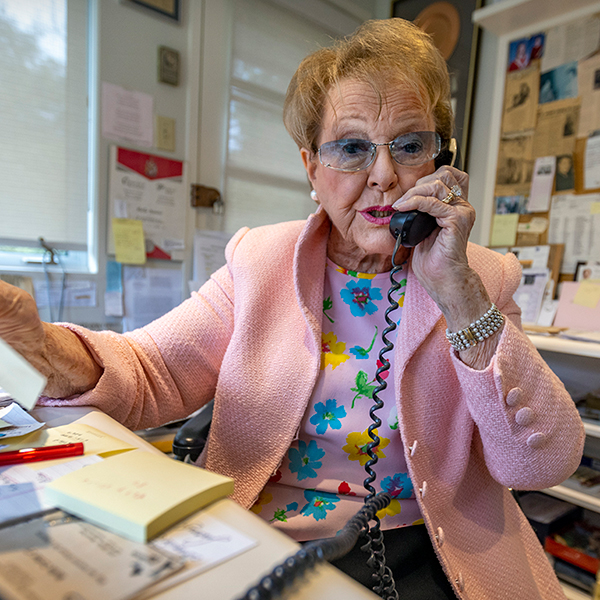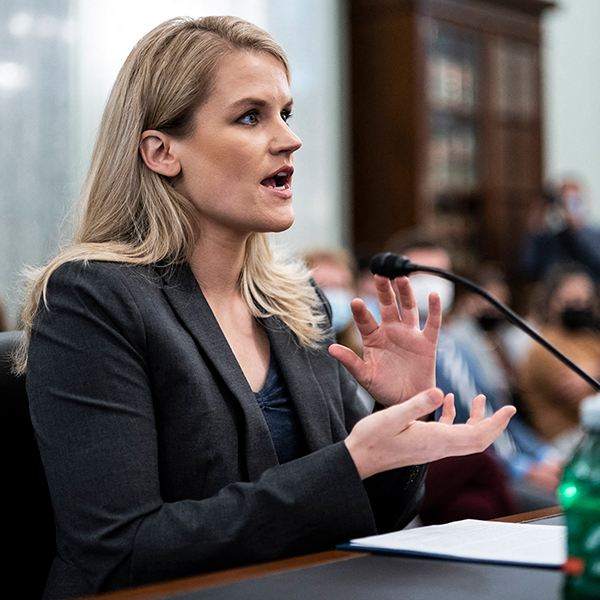Rachel Kimel‘s vision for the Bowery Project, a Toronto non-profit she co-founded in 2014, is cool but simple.
“We create something out of nothing by turning vacant spaces into growing places,” says Kimel, BA’98, who designs, builds and manages mobile urban farms for temporary use on vacant lots waiting for development. “We change grey, dusty, unused vacant spaces into green, productive, fertile, engaging and connecting places that make the city more livable.”
These urban farms are constructed from repurposed milk crates used as planters to grow a wide variety of vegetables, herbs and edible flowers. The food is donated to local charities and community organizations, and sold to local chefs. “Our farms also engage and educate the community in farm experiences and environmental sustainability in the city,” she says.
Mobility is a key advantage. “A farm of up to 500 crates can be assembled or disassembled and relocated within 24 hours, which allows for an easy change when the land must be claimed for its subsequent use,” explains Kimel.
Because the gardens are planted in light, portable crates above the ground, using new soil, there are also no concerns about the quality of the soil on the land, which could be contaminated and need to be remediated.
Kimel and co-founder Deena DelZotto hatched the idea for the venture after driving past the same east-end Toronto vacant lot countless times, while volunteering together at The Stop Community Food Centre’s Green Barn, where they learned how to use environmentally-friendly methods to grow fresh, healthy produce.
DelZotto, whose daughter attends McGill, turned to Kimel and said, “Why don’t we find out who owns the land and grow food there?”
The idea resonated with Kimel, who had turned her front lawn into a vegetable garden and loved growing food with her three young boys. “I love being outside, doing things with my hands, creating, learning and watching seeds grow into beautiful plants. It felt good to care about what we ate as a family and where our food came from.”
Although they didn’t find the original vacant lot’s owner, Kimel and DelZotto ran with the idea and opened their first substantial urban farm in the vacant space behind the Vanauley Street YMCA youth shelter at Queen St. and Spadina Ave. They and their volunteers grew everything from carrots, tomatoes and beans to chard, kale and arugula at this 1,500-crate farm, providing fresh produce for the YMCA kitchen and local chefs.
“The youth living in the shelter and using the drop-in centre volunteered for us and learned about urban farming,” Kimel says.
Bowery means “farm” in Dutch. When the Dutch settled in Manhattan in the 17th century, they called the main street the “Bouwerij,” explains Kimel, as it connected the farms to the settlements. She chose the name because it evokes the core idea of bringing farming back to the city and connecting city people to growing food. “We were also looking for a name that didn’t have green in it.”
The opportunity to turn a personal passion for food and giving back into a meaningful, entrepreneurial non-profit venture also reconnected Kimel with an impactful experience while studying at McGill two decades earlier. She’d volunteered at a community food hub near campus throughout her four years studying humanities and languages.
“I’ve always loved food and getting people to be involved with healthy, nutritious food,” she says.
As word spread about their urban farms, she and DelZotto were unexpectedly approached by apartment boutique developer Oben Flats, owner of the empty lot at Sherbourne St. and Gerrard St. East, which had ironically inspired them to start Bowery.
After sitting empty for over two decades, the urban eyesore has been transformed into a vibrant urban garden in its third season of producing more than 400 pounds of food grown in 1,500 milk crates. The site also hosts weekly workshops on farm maintenance and harvesting for adults and kids.
“About 25 per cent of the food we grow there goes to the Native Women’s Resource Centre. The women come once a week to volunteer and participate in programs. Many of the kids who come to Oben Flats are refugees from different countries and they’re so keen to do this,” says Kimel.
The Bowery has received financial support from the Rotary Club, Ontario Trillium Foundation, the Toronto Foundation, Landscape Ontario, and developers such as TAS and Tridel, who see the mutual advantages of temporary land use.
“All our sites have resulted from developers and other organizations reaching out to us. While waiting for approvals, the developer has a choice of sitting on the property or doing something good with the land that engages the neighbouring community,” says Kimel.
While there’s no shortage of vacant sites in Toronto waiting to be developed, sold or remediated, irrigating urban farms can be a challenge. “The biggest complication for us has been sourcing the water to irrigate the farms.” On one site, they pay for water from a neighbour; on another they get it from fire hydrants.
The planting of seedlings in soil starts in greenhouses in February and harvesting of fresh produce continues until the end of November. During winter, the Bowery’s dormant urban gardens still need tending. “We plant winter rye to refresh and revitalize the soil,” she says.
Kimel’s urban agriculture oases offer valuable, hands-on learning opportunities for city dwellers accustomed to getting their food directly from grocery stores.
“Our urban farming experience teaches people about healthy eating choices, where food comes from, what food looks like when it grows, and how even small spaces can grow a lot of food.”




